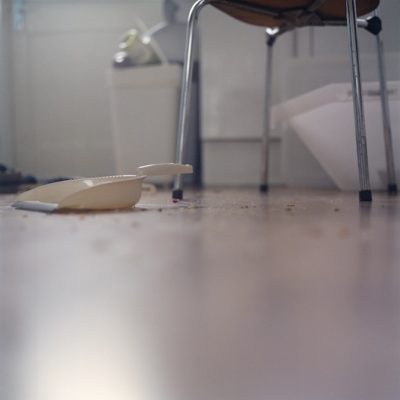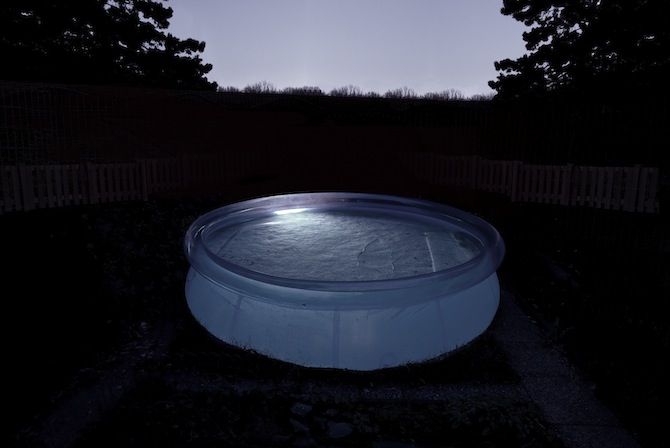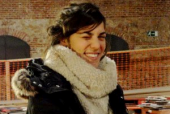Search
To search for an exact match, type the word or phrase you want in quotation marks.
A*DESK has been offering since 2002 contents about criticism and contemporary art. A*DESK has become consolidated thanks to all those who have believed in the project, all those who have followed us, debating, participating and collaborating. Many people have collaborated with A*DESK, and continue to do so. Their efforts, knowledge and belief in the project are what make it grow internationally. At A*DESK we have also generated work for over one hundred professionals in culture, from small collaborations with reviews and classes, to more prolonged and intense collaborations.
At A*DESK we believe in the need for free and universal access to culture and knowledge. We want to carry on being independent, remaining open to more ideas and opinions. If you believe in A*DESK, we need your backing to be able to continue. You can now participate in the project by supporting it. You can choose how much you want to contribute to the project.
You can decide how much you want to bring to the project.

The world moving at break neck speed and suddenly, click. This click, a time lapse, stealing what was to become a syncope of this giddy rhythm. The click, that captures the now-nothing-will-be-the-same. A blurred image, stolen, that freezes in time the distracted though penetrating gaze of a young girl, like the time that surrounds her, the times we live in: blurred and distracted. This stolen instant possesses a certain transcendence. The young girl impassively watches how she is captured amidst the agitated crowd that surrounds her. Her incisive gaze pierces the negative.
This head-trip hit me in a small Palace in Tarragona, the Casa Canals, while looking at the exhibition Transitant by Lluc Queralt. However, all this occurs thanks to SCAN Tarragona, Festival Internacional de Fotografía, that has occupied multiple exhibition spaces and photographic records over the last few months and will do so until 24 December. Such as that of Lluc Queralt at the Fundació Fòrum, or that of Cristina Serra Juncosa and Núria Rion with their project Rastres Interiors in the COAC, along with the interesting proposalSoto Luce. Apol·lo, llum i Imatge, in the Museu Nacional Arqueològic; and so on to a total of 25 exhibitions, that have occupied the city of Tarragona and part of Barcelona.
But maybe the most relevant of SCAN, beyond its “star”, the exhibition Talent Latent, or its talks (with Gabino Diego and Joan Fontcuberta, amongst others), is its perspicacity in aiming to generate activity and movement around photography.
Jesús Micó is the curator of Talent Latent. He was in 2010, and also will be in 2014, according to the organisers, all things permitting, allowing a discourse in the short, medium and long term. The exhibition, that can be visited at the Tabacalera in Tarragona, exhibits the artists selected from an international open call, launched last June in which some 300 “sponsored” proposals were received, at the suggestion of gallerists, collectors and teachers.
The SCAN team aims to define the festival around not students but emerging authors, those with difficulties of projection. According to the direction of the Festival, this edition adheres perfectly to this philosophy, and it seems that this is the case, given that the incorporation of Jesús Vilamajó, the organiser of the now defunct Nice to meet you Emergent Lleida, has translated into the section Full Contact, one of the most effective events in the festival. Full Contact was a two day meeting point for artists and agents of the art world interested in establishing new ties, to meet and exchange. The winner of this encounter, Stéphanie Roland, will exhibit in Private Space and in Tarragona in the spring of 2013.
Another noteworthy facet of SCAN 2012 that also imbibes, like the prize Full Contact, from one of the associates of the Festival, is Private Space. The show Autoedició Exposada pays heed to an undeniable reality in photography in the current times: the recuperation of the artist’s book. These are presented as signed, limited editions, with even a stamp of authenticity; becoming pieces in themselves, substitutes for the “work”, at a time when digitalization permits infinite reproductions and less control over the distribution of the image itself.
 Even so, it is surprising that some of the activities included in the programme already ended months ago. Due to contractual problems, SCAN shifted its natural timing from spring to autumn, and some of the activities programmed within the Festival, such as Henri Lartigue. Un món flotant en Caixaforum Tarragona, were unable to move from the scheduled time.
Even so, it is surprising that some of the activities included in the programme already ended months ago. Due to contractual problems, SCAN shifted its natural timing from spring to autumn, and some of the activities programmed within the Festival, such as Henri Lartigue. Un món flotant en Caixaforum Tarragona, were unable to move from the scheduled time.
On the other hand, aside from the events displaced in the calendar, SCAN 2012 has suffered, like other cultural events organised in the city, a drastic reduction in its budget, in the very year that Tarragona celebrates being the Capital of Catalan Culture, a title that can sound rather empty if one bears in mind the lost opportunities. In this situation of a certain emergency, not just economic but above all cultural and programmatic, the support of the city’s town council seems once again insufficient. SCAN seems to suffer from a lack of institutional “backing” and with it insufficient media coverage; the wearing down of a team that should be more highly valued, (some have been cultural militants for 30 years now, and it doesn´t look as if any replacements are appearing) without the pampering that a non central city ought to proffer to events of this magnitude.
After months of activity and a search for excellence on the part of the organisation, put into context the danger is clear: without clear support, the result could end up changing the festival irredeemably into a “homemade” festival, although one of excellent quality. SCAN is about to end and a visit, for those who haven´t already been, is highly recommended. For those who have, a reviewing (neither blurred nor distracted) is indispensable.

Marina spent the first two years of her life without saying anything: they told her parents that she was internalizing. And even though it’s a while now since she learnt to talk, she still needs to internalize. To then shake things up, question, order, disorder and celebrate. She finds politics in many places and has a special interest in all that’s subaltern, in the “commons”, and in the points where all this has an impact on creative expression.
"A desk is a dangerous place from which to watch the world" (John Le Carré)